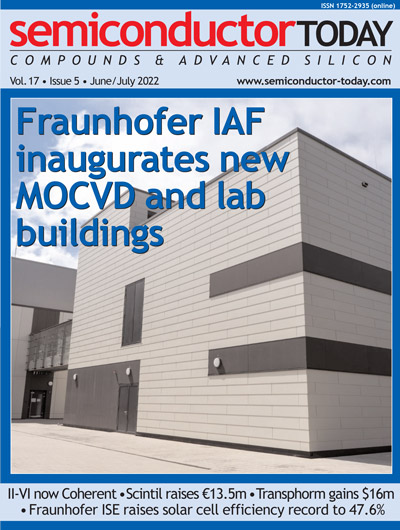- News
3 October 2012
XsunX to complete CIGSolar deposition system assembly in October
XsunX Inc of Aliso Viejo, CA, USA, which is developing hybrid copper indium gallium (di)selenide thin-film (CIGS) photovoltaic (TFPV) cell technologies and ‘CIGSolar’ manufacturing processes, says it is on target to complete assembly of its CIGSolar TFPV cell evaporation system in October. The firm has implemented a fast-track completion schedule to expedite its technology demonstration and marketing efforts.
In July, XsunX announced that it had received equity financing through Ironridge Energy Co, an institutional investor financing small-cap public companies in the energy sector. The funding is enabling XsunX to focus on assembling and configuring a demonstration of the CIGSolar TFPV cell evaporation system while also establishing technology marketing operations in its new facility in Irvine, CA. “We are pleased to have had the opportunity to help facilitate the development of XsunX’s unique TFPV cell evaporation system,” says Ironridge’s managing director John C. Kirkland. “The CIGSolar system offers the potential to improve operating efficiencies for the TFPV industry,” he adds.
“We have been anxious to launch the start-up, testing and calibration of our patent-pending CIGSolar technology so that we can begin customer demonstrations as quickly as possible,” says XsunX’s CEO Tom Djokovich. “The industry’s obvious need and the focus of our CIGSolar TFPV cell evaporation technology is to provide cost reductions and an opportunity to restore operating margins for manufacturers,” he adds. “How to achieve these goals has been an elusive challenge for the industry, but we believe that CIGSolar’s new approach is the right solution to this challenge.”
The firm says that its method, unlike other CIGS manufacturing technology, uses individual thin stainless-steel substrates sized to match silicon cells to be used as an alternative to silicon cells in existing or new solar module assembly lines. Another improvement is the use of multi-small-area thermal co-evaporation technology to better control the complex management of the CIGS layer deposition process. This provides a more precise deposition environment, the firm claims. Together, these improvements help to avoid performance losses experienced when cells are either cut from rolls of CIGS material or mismatched electrically in monolithic large-area deposition assemblies.


